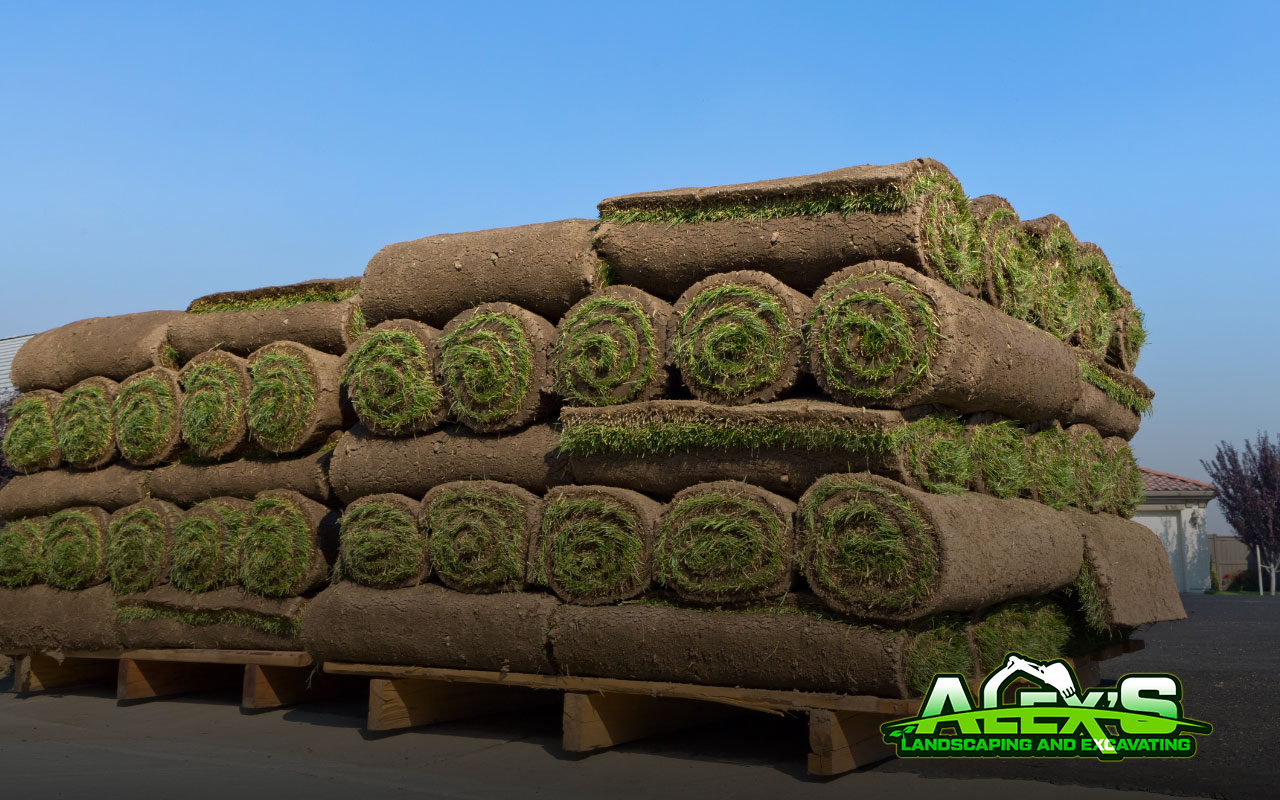
Improve Your Garden’s Appearance by Laying One of These Types of Sod Grass
Welcome to another post! Today we will share with you the most common types of sod grass. Our team understands that there is a wide variety of options, but we will focus on the main four.
Some grasses grow better in certain climates than others. Therefore, when choosing a type of grass seed, you need to consider many factors such as the weather, the type of soil of your garden, etc.
Before continuing with this blog, it is essential to mention that you can separate sod into two main types: warm-season and cool-season grasses.
Warm-season grass grows better in summer. Consider that these grasses turn brown and go dormant during the winter.
If you live in a cold area, then you should pick cool-season grass. Also known as northern grasses, this turf grows during the cool months of fall and winter.
Next, we will explain each option’s main benefits, and then you will be able to decide which grass is the best for you.
Consider These Types of Sod Grass for Your Garden

The turf is a pre-grown grass that is held together by the root system or a thin layer of a biodegradable material. It is commonly used to enhance the appearance of landscapes. But it is essential to select the right type, or it will not grow properly. Therefore, you need to be sure you’re planting the right grass type.
These are the types of sod grass to consider for your garden :
- Bermuda grass is one of the best pest-resistant options.
- St. Augustine grasses perform better in shade than other warm-season grasses.
- Kentucky bluegrass protects soil from erosion.
- Perennial ryegrass reflects light better than most grasses.
Each variety of grass has its characteristics, which is why we will explain them in detail.
Every gardener wishes to have a green lawn, but first, they must decide between these four grass types. Now it’s time to explain to you the reasons to consider these options. Remember that this decision will depend on your needs.
Bermuda Grass Is One of the Best Pest-Resistant Options

First, we want to talk about Bermuda grass as it is one of the most popular grass types. When conditions are right, this turf can withstand attacks of different kinds of pests. It is recognized for its disease resistance. This grass tolerates a wide variety of insects such as mites, mealybugs, and cutworms.
Another benefit of planting this type of sod is that it’s more likely to grow due to the warmer temperatures. It is recommended to lay Bermuda sod in areas with temperatures between 60 and 75 degrees, and it can even resist hotter temperatures. In other words, it is a warm-season grass with perfect heat tolerance.
Compared to other grasses, such as fine fescue, Bermuda does not require as much water to grow and thrive. Therefore, watering this lawn will be easier compared to cool-season grasses. In addition to requiring less water, this sod is easy to maintain.
St . Augustine Grasses Perform Better in Shade Than Other Warm-Season Grasses

Our team recommends St. Augustine grass as it has more shade tolerance than other warm-season turfgrasses. One of the main benefits of this grass is that it tolerates foot traffic. This type of grass is ideal for golf courses and sports fields.
We usually recommend this grass type as it grows well in most soils; therefore, it is an excellent option for your backyard. St. Augustine also has a perfect shade tolerance; that is why people prefer it over Bermuda grass.
If you have a shady area that you want to cover with grass, St. Augustine grass may be the turf for you. Once you decide you want to lay this type of sod, then call one of the local sod farms to get it quickly. Make sure to order it at the perfect mowing height.
Kentucky Bluegrass Protects Soil from Erosion
Kentucky bluegrass is a cool-season grass chosen by homeowners because of its attractiveness. Due to its fine texture, this sod type can withstand hot, dry weather. For many homeowners, this is synonymous with the ideal lawn. When it grows in good conditions and with proper care, this grass offers a dense, durable, and lush lawn.
Kentucky bluegrass indeed requires more maintenance than other grass types, but results can be worth it. Depending on your location and your lawn care goals, this is maybe the perfect choice for you. This lawn is also recognized for its drought tolerance.
You need to water this sod grass twice per week. This watering schedule will help you keep it healthy, growing, and green.
Perennial Ryegrass Reflects Light Better Than Most Grasses

Perennial ryegrass is widely used throughout the country. This grass is recognized for its quick germination rate and fast establishment. Depending on where you live and your goals, this option may offer just what you need.
These are the main benefits of perennial ryegrass:
- It offers an excellent cold tolerance.
- Perennial ryegrass germinates very quickly
- Ryegrass has a very high wear tolerance.
You must know that perennial ryegrass is not as cold-hardy as Kentucky bluegrass or tall fescue. But once it is established, it spreads slowly.
How to Choose the Right Sod for Your Lawn
There are different types of grass, and it is crucial to choose the correct variety if we want the grass to grow in good condition.
When choosing a sod type for your garden, you must consider:
- The local climate
- Soil condition
- Sunlight exposure
- Foot traffic
- Watering requirements
Make a comparison and select which option is better for you.
At this point, you must be clear what are the differences between the types of sod grass that we listed before. Now you know that Bermuda and St. Augustine are the best warm-season grasses. On the other hand, Kentucky bluegrass and Perennial ryegrass are cool-season grasses.
Call us if you need help installing a new sod grass. Our team has the experience and the tools to guide you through this process. We are here to help you make the right decisions.
